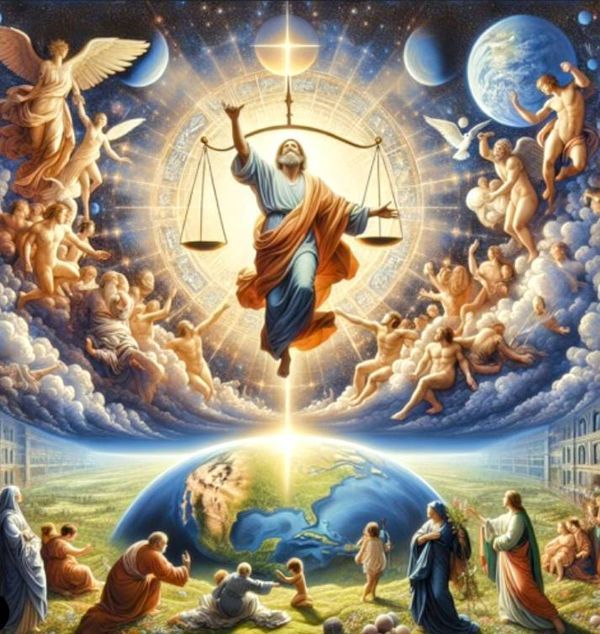The Bahá’í teachings propose a transformative perspective on the concept of divine revelation, emphasizing the profound unity among all manifestations of God throughout history. This article endeavors to unravel the tenets surrounding the unity of all the Prophets, or Manifestations, of God, thus fostering a heightened understanding of their role in the spiritual evolution of humanity.
The Concept of Manifestations of God
At the heart of Bahá’í belief lies the acknowledgment of the Manifestations of God, who serve as channels through which divine wisdom is imparted to humanity. Figures such as Moses, Jesus, Muhammad, and Bahá’u’lláh are regarded not merely as historical leaders but as distinct embodiments of the same eternal truth. Each Manifestation brings forth teachings tailored to the needs of their respective ages, thereby addressing the evolving spiritual and social dynamics of humanity.
This concept shifts the focus from an exclusive reverence for any single Prophet to an inclusive appreciation for the collective legacy left by all Prophets. By recognizing their interconnectedness, Believers cultivate a more holistic understanding of God’s message, which underpins the essential doctrines of the Bahá’í Faith: the oneness of God, the oneness of humanity, and the oneness of religion.
The Shared Foundation of Teachings
While each Manifestation has contributed unique doctrines and scriptures, a discerning analysis reveals that their core teachings resonate with remarkable similarity. Key principles such as love, justice, equality, and service to humanity permeate their messages, conjuring a tapestry of spiritual wisdom that transcends cultural and temporal boundaries. The Bahá’í Faith propounds that these shared values illuminate an intrinsic purpose behind the diversities of religious expressions.
This notion beseeches seekers to examine how these reverberating themes serve as foundational pillars for societal progress. When individuals embrace the unity of the Prophets, they are less inclined to harbor animosities born from sectarian strife. Hence, the pursuit of a comprehensive understanding fosters not only interfaith dialogue but also a paradigm shift toward global unity.
Commonalities Among Diverse Religions
By delving into the teachings of various religious traditions, an intriguing synthesis emerges. For instance, the Golden Rule — “treat others as you wish to be treated” — is a sentiment echoed in the teachings of numerous Prophets, reinforcing the universality of moral ethics across faith lines. This convergence not only fosters respect for different religions but also prompts a recognition of shared humanitarian aspirations.
Exploring the rich narratives and metaphysical frameworks of disparate religions highlights how cultures have sought to articulate the divine encounter. In essence, the stories of the Prophets illuminate the perennial quest for truth, suggesting that ultimate realities are multifaceted and ineffable. Therefore, cultivating an outlook that appreciates both the distinctiveness and commonalities of diverse faiths equips individuals to navigate the complexities of a pluralistic world.
The Role of Progressive Revelation
Central to Bahá’í ideology is the principle of progressive revelation, which posits that God’s revelations are not static but unfold over time in a systematic and purposeful manner. Each Manifestation is seen as a segment of a continuous and unfolding truth, with the teachings of Bahá’u’lláh regarded as the culmination of this divine pedagogy. In this context, the Bahá’í Faith presents itself as the latest chapter in a long narrative of humanity’s relationship with the divine.
This progressive nature encourages adherents to reinterpret and adapt teachings in light of contemporary challenges. As society evolves, so too does the necessity for fresh insights into age-old spiritual truths. Thus, followers are inspired to approach sacred texts with introspection, seeking to derive meaning pertinent to the modern condition. Acknowledging the dynamic aspect of revelation can serve not only to enrich personal spirituality but also to promote social equity and justice.
The Path Toward Unity
The implications of endorsing the unity of the Prophets extend beyond theological discourse; they offer a plausible pathway toward global harmony. The Bahá’í teachings advocate for the dissolution of sectarian divides, encouraging believers to forge bonds of understanding among adherents of different faiths. This inclusive ethos is encapsulated in the idea that all human beings are members of one global family, endowed with the inherent capacity to connect deeply across cultural divides.
Engaging in interfaith dialogue, joint community service initiatives, and collaborative efforts toward social betterment can markedly transform divisive narratives. By participating in shared endeavors, individuals can establish relationships that transcend religious affiliations and work toward communal goals. Such collaborative frameworks not only amplify spirituality but also enhance collective resilience in addressing pressing global issues.
A Call to Action
In conclusion, the Bahá’í teachings concerning the unity of all the Prophets of God present an inspiring paradigm that invites individuals to reconsider preconceived notions regarding religion. By embracing the continuity of divine revelation and the shared ethical underpinnings of disparate faiths, society can aspire towards an unprecedented era of unity.
This philosophical framework calls upon every seeker to engage actively in championing the values that bind humanity together, fostering a spirit of cooperation, compassion, and openness. The teachings provide not only a theological perspective but also an alluring practical guide for navigating the complexities of coexistence within an increasingly interconnected and diverse world.
